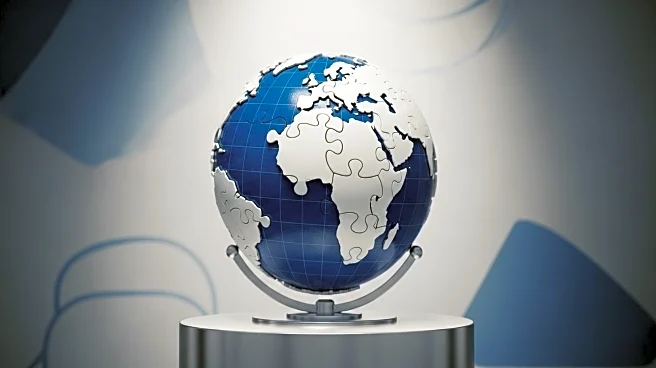What's Happening?
Chinese President Xi Jinping addressed the Shanghai Cooperation Organization (SCO) Summit in Tianjin, emphasizing China's role as a leader in global governance. Xi criticized 'bullying practices' and pledged significant financial support to SCO member states, including 2 billion yuan in grants and 10 billion yuan in loans. The summit, attended by leaders such as Russian President Vladimir Putin and Indian Prime Minister Narendra Modi, showcased China's partnership with Russia and its vision for a multipolar world. Xi unveiled a Global Governance Initiative, aiming to increase the representation of developing countries and promote multilateralism, challenging the U.S.-led world order.
Why It's Important?
Xi's address at the SCO Summit highlights China's strategic positioning as an alternative to Western leadership, particularly amid President Trump's 'America First' policy. The financial pledges and initiatives signal China's intent to strengthen ties with SCO countries and reshape global governance structures. This development could shift economic and political alliances, impacting U.S. influence in international affairs. Countries aligned with China may benefit from increased trade and investment, while the U.S. and its allies could face challenges in maintaining their global leadership roles.
What's Next?
The SCO Summit may lead to further diplomatic and economic collaborations between China, Russia, and other member states, potentially altering global power dynamics. The U.S. might respond by reinforcing its alliances and trade policies to counter China's growing influence. Observers will watch for any shifts in international relations, particularly regarding the ongoing trade tensions and geopolitical strategies involving the U.S., China, and Russia.
Beyond the Headlines
Xi's vision for a new global order raises questions about the future of international institutions and the balance of power. The emphasis on multilateralism and developing countries' representation could lead to long-term changes in global governance, challenging the dominance of Western-led organizations. Ethical and cultural dimensions may emerge as countries navigate these shifts, potentially redefining concepts like human rights and international cooperation.










